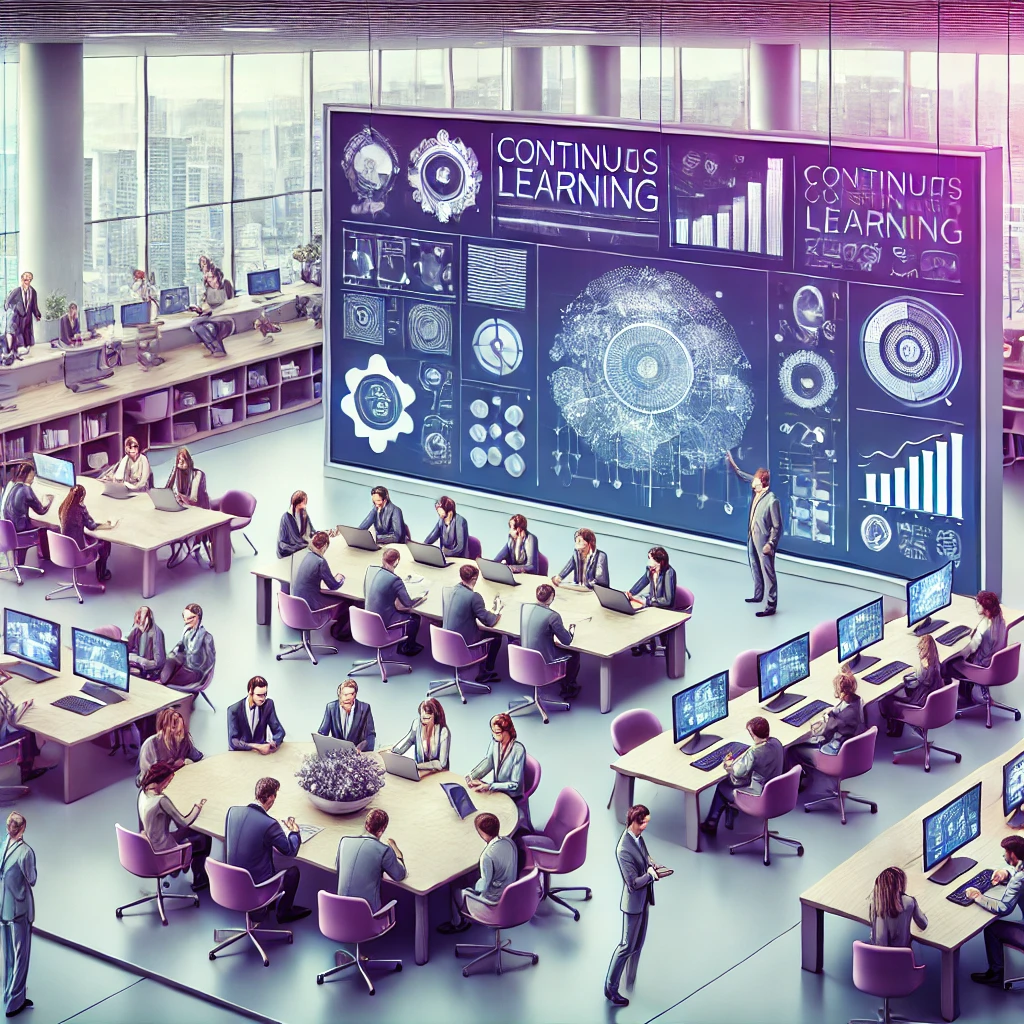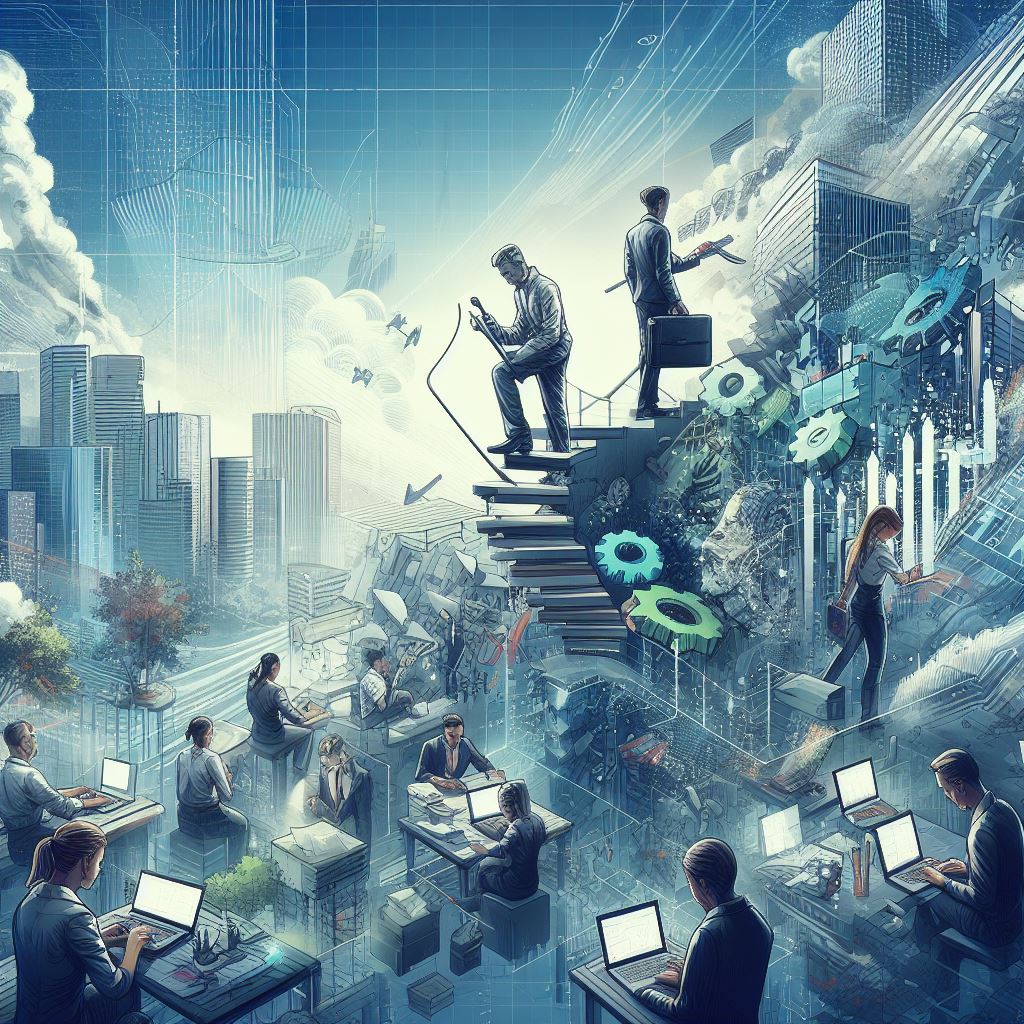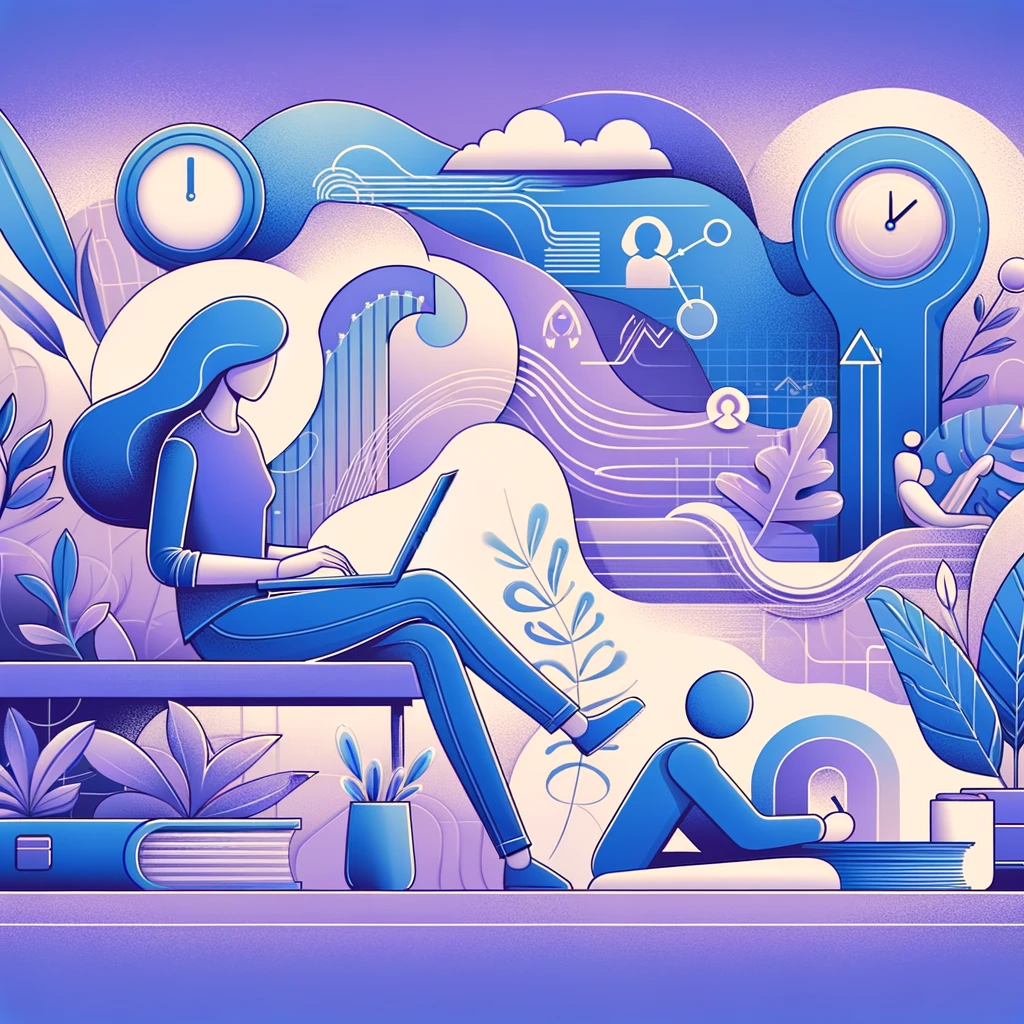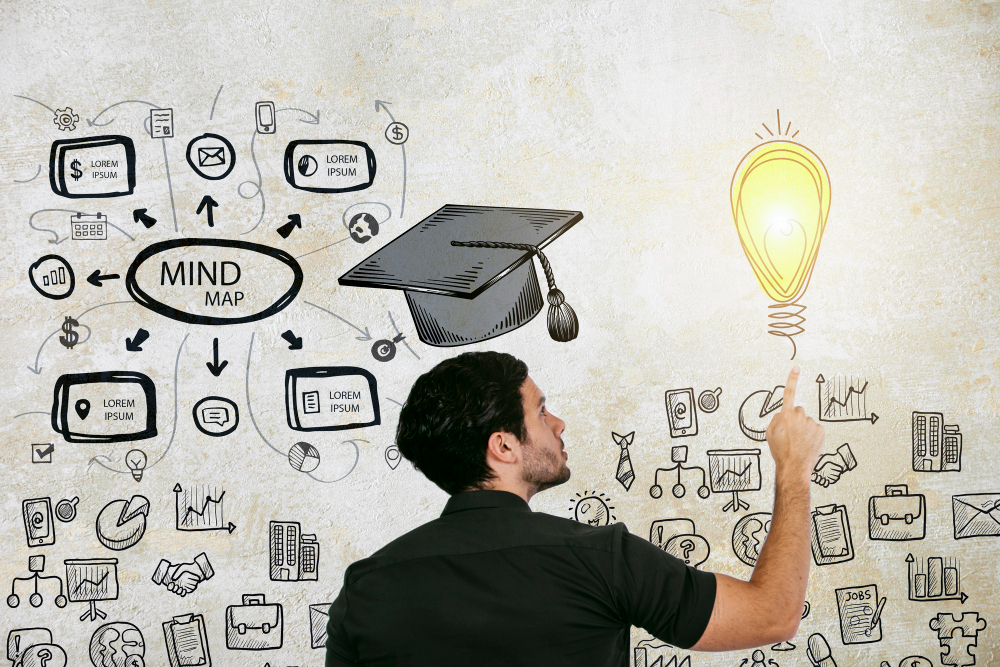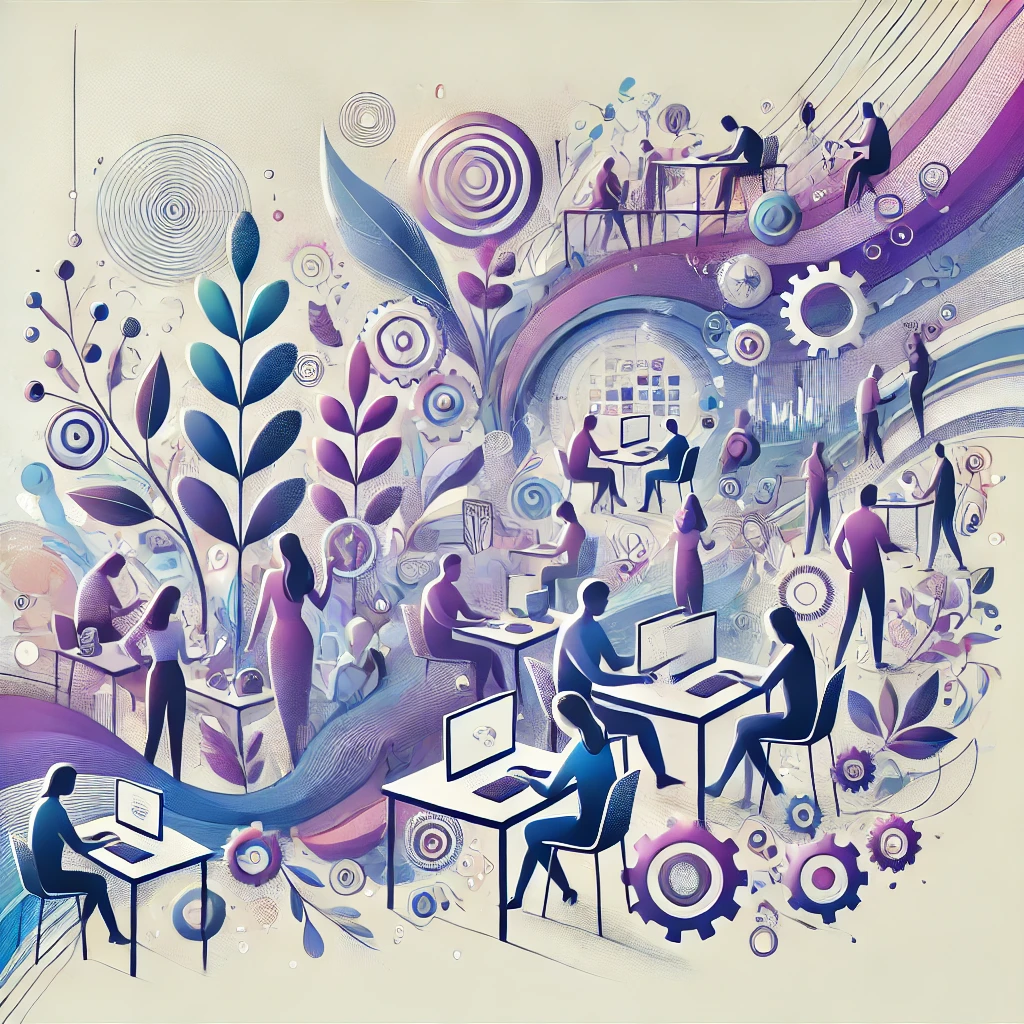Modern HR Practices for Fostering an Innovative Continuous Learning Culture
In today’s rapidly evolving business environment, staying competitive requires more than just periodic training sessions. It necessitates a culture of continuous learning, where growth and development are integral to everyday work. Modern HR practices are pivotal in cultivating this environment, facilitating not only the upskilling of employees but also driving innovation and adaptability within organizations. This blog post outlines how HR can build and nurture a continuous learning culture effectively.
Modern HR Practices: Integrating Learning into Daily Routines
To embed continuous learning into the fabric of the organization, it must be integrated into the daily routines of employees. Modern HR practices can facilitate this by leveraging technology to deliver learning in more digestible, engaging formats such as microlearning modules that are accessible on mobile devices anytime, anywhere. This method allows employees to learn at their own pace and apply new skills immediately to their work, enhancing retention and efficacy.
Modern HR Practices: Encouraging Knowledge Sharing
A robust culture of continuous learning thrives on the free flow of information. Encouraging knowledge sharing among employees can be achieved through structured programs like mentoring, where experienced workers guide newer employees, or through less formal methods such as collaborative projects and team meetings. HR can promote knowledge sharing by creating forums and digital workspaces where employees can ask questions, share insights, and collaborate on solutions, reinforcing a learning community within the workplace.
Modern HR Practices: Rewarding Learning and Growth
To truly foster a culture of continuous learning, organizations must recognize and reward growth and learning. Modern HR practices can integrate recognition programs that reward not just performance outcomes but also the effort put into learning new skills and sharing knowledge with peers. Such rewards can be structured as bonus points, badges in gamification systems, or even promotions and raises, all of which affirm the company’s commitment to employee development.
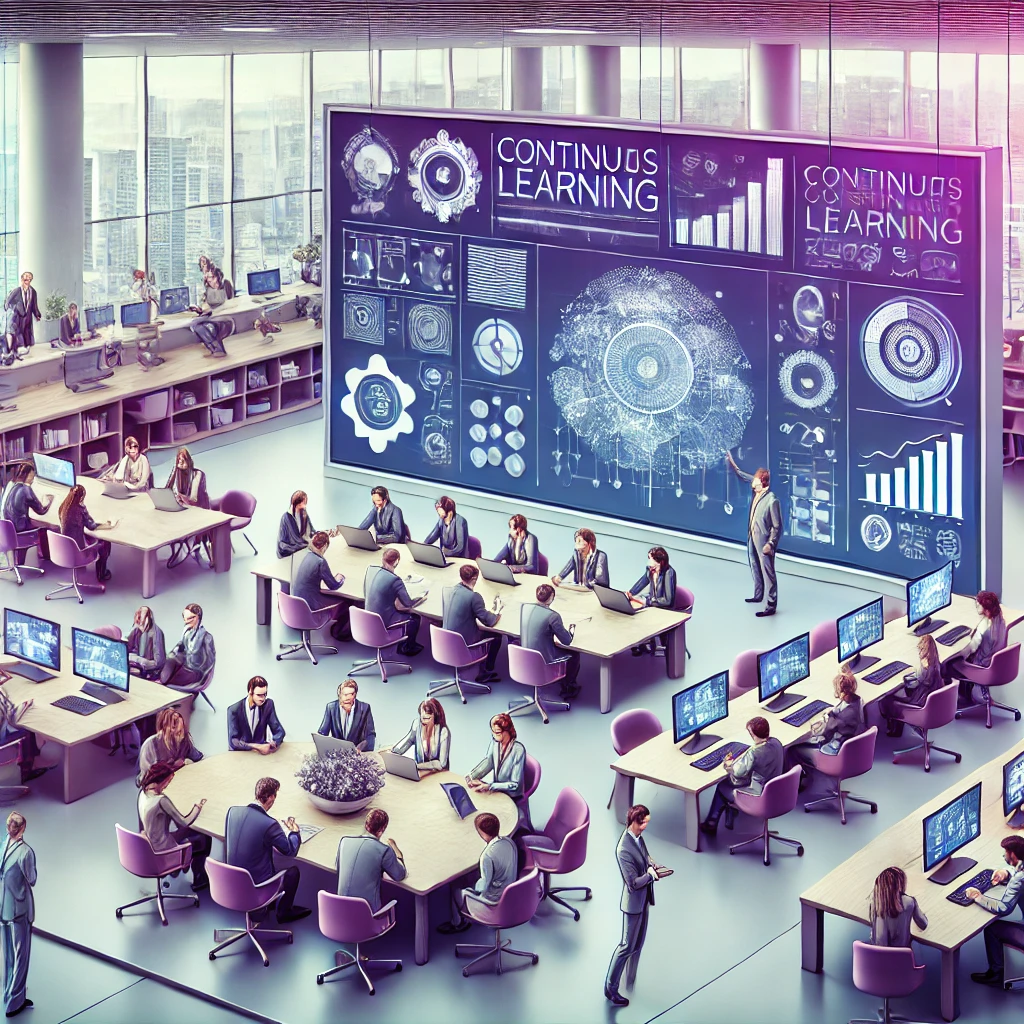
Modern HR Practices: Personalizing Learning Experiences
The one-size-fits-all approach to training is becoming obsolete. Modern HR practices focus on personalizing learning experiences to meet the diverse needs of individual employees. By utilizing data analytics, HR can identify the unique skills and learning paces of employees, allowing for the creation of customized learning paths that enhance engagement and effectiveness. Personalization ensures that learning is relevant, which significantly boosts motivation and the application of new skills.
Conclusion: The Strategic Impact of a Learning-Oriented Culture
The benefits of establishing a culture of continuous learning are manifold. It not only helps in attracting and retaining top talent but also prepares companies to respond adeptly to changes and challenges in the business environment. Organizations that succeed in creating this culture enjoy higher levels of employee engagement, productivity, and innovation. As we move forward, the role of HR in fostering this environment will increasingly become a strategic differentiator, positioning companies for long-term success and sustainability.
By embracing these modern HR practices, companies can build a resilient workforce ready to take on current and future challenges with knowledge and confidence.
Explore how elevating employee wellbeing contributes to sustainable growth by reading our insightful post, “Modern HR Practices: Elevating Employee Wellbeing for Sustainable Growth.”
